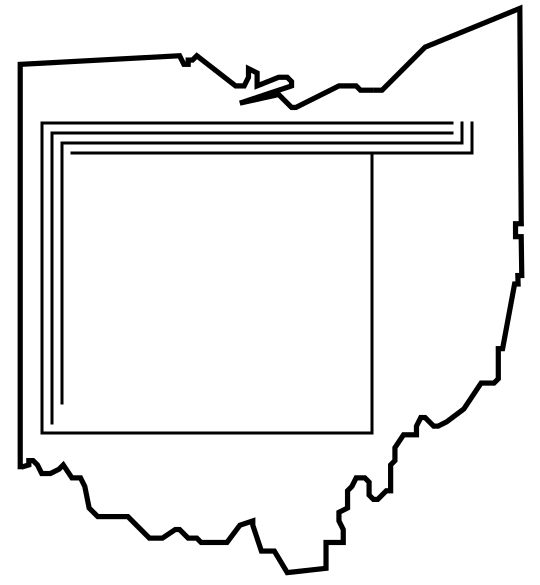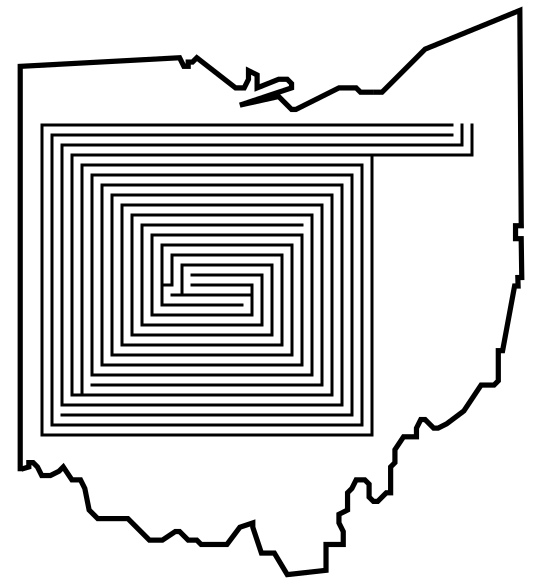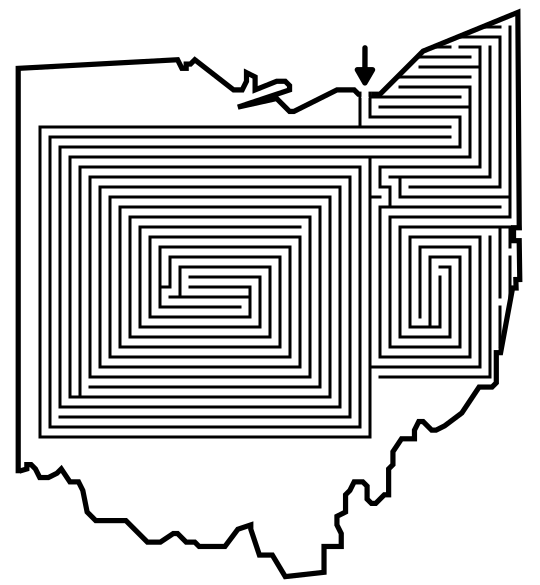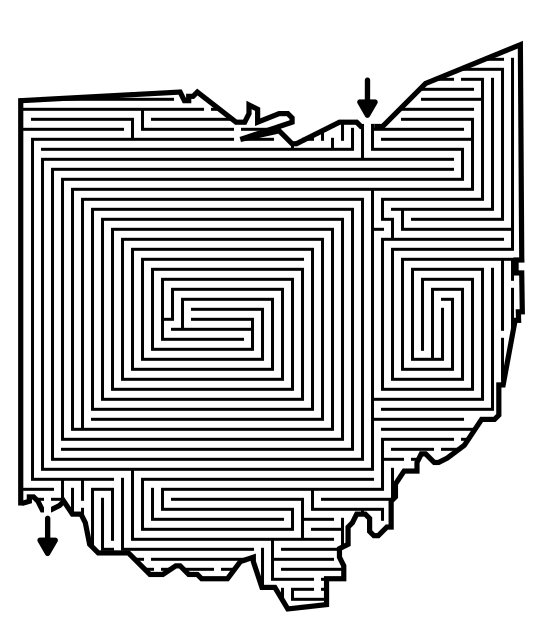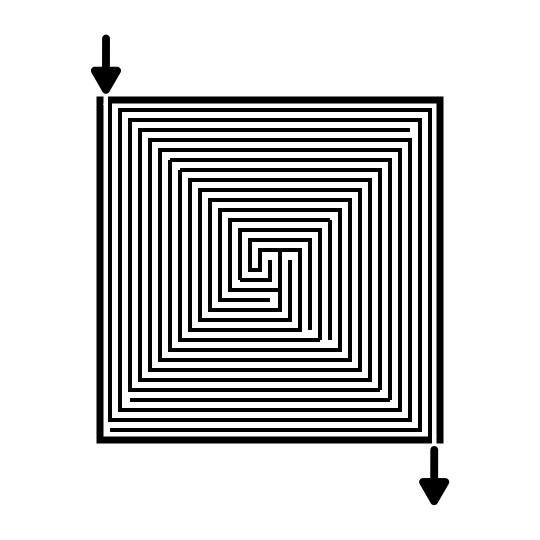In a series of posts I will show you how to make a maze in a wide variety of design constructions. The 11th type of maze construction is the Spiral maze. Let’s define what I mean, then get into the example. Every example will use the sample basic outline (the state of Ohio) to better illustrate the differences between each maze type. While this shape works to compare the over 40 maze constructions I review on the site, the ideal shape for this construction is a rectangle/square. If you are more visual check out the video of the making of a spiral maze at the end of the post.
Spiral Maze - While a version of a spiral can be used in many maze constructions, a Spiral maze uses the spiral construction for the majority of the maze (and sometimes the entire maze), giving the maze a unique look.
HOW TO MAKE A SPIRAL MAZE
Step 1 - Draw the Outline
The outline of the maze makes the outer wall of the maze. It can be anything from a simple shape like a square, to a complex picture. The outline should be thicker than the internal lines to give the maze definition. In the example below I chose the state of Ohio. Ideally your spiral maze will be a square or rectangle.
Step 1.5 - Choose the Start and Goal
For the below example I chose the start of Cleveland and the goal of Cincinnati.
Step 2 - Start Drawing the Spiral
Take the outline and begin making a spiral by drawing walls. Remember that as you build the spiral you must embed the spiral’s exit from the start. The first example below shows an entrance to the spiral in the NE corner that immediately splits into 2 possible pathways. The path to the right is the exit path. Notice the box is closed to create the spiral, so without the exit you would spiral to a dead end.
Continue drawing the walls towards the center, while occasionally splitting the pathway to confuse the solver. And, of course, keep track of which pathway is the exit ! I typically keep this pathway in a spot away from the other “open” incoming pathways that I have not made into dead ends/correct yet. The branches you create as you move towards the center can be hard to keep track of and checking your work is vital to get this maze construction correct. See the video below to watch how the branches are split out and come together in the center !
And finally complete the spiral by linking the exit to one of the entrance pathways in the center.
Step 3 - Draw any Additional Walls
The use of Ohio as a template means a strictly spiral maze will be difficult because of the nooks and crannies of the shape. I think Colorado would make a much better example. In any case, draw additional walls to fill in the maze. I did a second smaller spiral to the right and a small flat spiral below the main spiral.
Step 4 - Complete the Maze Walls
Completing the remaining walls to the goal.
Step 5 - Make the Maze Solution
Highlight the correct path in the final version of the maze to create the final Maze solution. While this is optional for some constructions of mazes, the difficulty of drawing and solving a spiral maze mean that providing a solution is essential. I find that the solution of spiral mazes means longer solutions and using more of the maze. Below, a significant part of the maze is included in the solution.
Additional Spiral Maze examples
Here is an example of a spiral maze in a simple box format. When you have a rectangular shape to maze, the spiral maze construction is the perfect construction to use. The pathways are not wide but they are hard to follow with your eyes to solve (your eyes may jump lines and not know it). Typically any choices you make are not known to be wrong until you are in the center of the spiral and you reach a dead end or or loop. This can make even small spirals difficult to solve quickly.
For my second example, I have an easy Spiral maze. Not a lot of choices on the way in. Nice wide pathways.
My third example is a medium size scale Spiral Maze. Try to solve it with your eyes…so difficult.
Making of a Spiral Maze Video
Here is a video of the making of a spiral maze using standard equal maze paths.
Interested in learning how to make or draw other types of digital mazes ? I have step by step instructions on how to make over 40 different maze types.
If you prefer making labyrinths, you can find step by step labyrinth making instructions.


